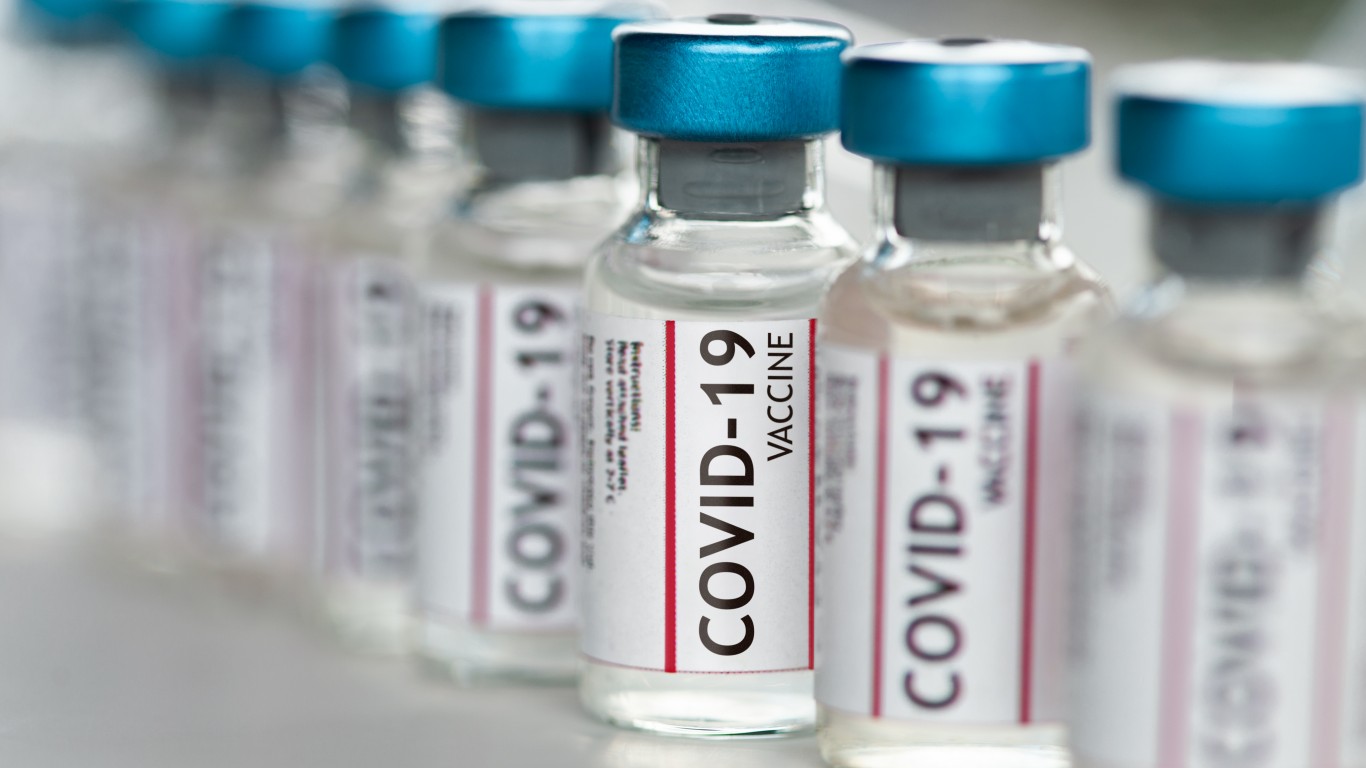Health and Healthcare
This Is The State Where People May Refuse Vaccine

Published:

Shortly after the outbreak of COVID-19, the Census Bureau launched a vast initiative to measure the effects of the disease on Americans. It is called the Household Pulse Survey. So far, the results have been released in three phases, which began with the first study that was in the field starting April 23, 2020. The data is released by week
Each weekly report actually covers about two weeks of information gathered by the Census Bureau and other federal agencies. Among the questions asked each week is whether adults who have not received vaccine definitely will be vaccinated when shots are available. Nationally, only 51.4% say they will. That leaves a large number of people who have not made the decision or have decided they will not. The issue is a major healthcare problem. In a recent NPR-PBS NewsHour-Marist, 49% of Republican men said they do not plan to be vaccinated.
Current data also covers Week 25 and includes the results of questions about income loss, the percentage of Americans who work from home, food scarcity, food insecurity, chances of eviction or foreclosure, difficulty in paying household expenses.
The work is done in partnership with the Bureau of Labor Statistics (BLS), Bureau of Transportation Statistics, Centers for Disease Control and Prevention (CDC), Department of Housing and Urban Development, National Center for Education Statistics, National Center for Health Statistics, Social Security Administration and USDA Economic Research Service.
In the section of the Household Pulse Survey called “Likelihood of Receiving a COVID-19 Vaccine”, the state that ranks lowest in terms of saying they will is Mississippi at 24.3%. The state that ranks highest is Vermont at 68.9%. The metro which ranks lowest is Riverside, CA. The metro that ranks highest is Seattle at 73.5%.
This Is The State Where People May Refuse Vaccine
| State | Adult Population | Not Yet Vaccinated |
|---|---|---|
| Mississippi | 2,189,670 | 24.3% |
| Wyoming | 433,400 | 26.8% |
| North Dakota | 561,016 | 28.1% |
| Montana | 822,204 | 35.7% |
| Louisiana | 3,431,432 | 35.8% |
| Oklahoma | 2,916,436 | 36.9% |
| Tennessee | 5,221,475 | 37.5% |
| Idaho | 1,343,198 | 38.3% |
| Alaska | 524,925 | 39.5% |
| Georgia | 7,955,983 | 42.0% |
| West Virginia | 1,379,576 | 43.2% |
| Nevada | 2,399,457 | 44.0% |
| Indiana | 5,015,550 | 44.4% |
| South Dakota | 642,658 | 44.5% |
| Arizona | 5,597,268 | 45.5% |
| Iowa | 2,342,905 | 45.5% |
| Arkansas | 2,246,527 | 45.6% |
| Alabama | 3,717,378 | 45.9% |
| Kentucky | 3,344,102 | 45.9% |
| Florida | 17,085,385 | 46.4% |
| Ohio | 8,822,539 | 46.4% |
| Utah | 2,281,207 | 46.6% |
| Kansas | 2,140,957 | 46.8% |
| South Carolina | 3,969,123 | 47.9% |
| North Carolina | 8,017,566 | 48.9% |
| Texas | 21,356,906 | 49.0% |
| Michigan | 7,644,458 | 49.6% |
| Missouri | 4,617,880 | 50.1% |
| Wisconsin | 4,438,719 | 50.4% |
| Virginia | 6,472,737 | 52.6% |
| Illinois | 9,546,424 | 52.7% |
| Delaware | 754,637 | 54.0% |
| Colorado | 4,454,718 | 54.2% |
| Nebraska | 1,418,191 | 55.6% |
| New Mexico | 1,589,574 | 55.7% |
| Oregon | 3,302,727 | 56.9% |
| Pennsylvania | 9,776,154 | 57.2% |
| New Hampshire | 1,073,014 | 57.5% |
| Maryland | 4,586,920 | 57.8% |
| New York | 14,847,080 | 57.9% |
| California | 29,939,021 | 58.1% |
| Hawaii | 1,073,229 | 58.3% |
| Rhode Island | 817,559 | 59.2% |
| New Jersey | 6,776,822 | 59.7% |
| Connecticut | 2,732,423 | 62.4% |
| Maine | 1,065,620 | 64.1% |
| Minnesota | 4,241,624 | 64.2% |
| Massachusetts | 5,324,065 | 65.1% |
| Washington | 5,890,357 | 66.5% |
| Vermont | 485,485 | 68.9% |
Click Here To Read COVID-19: States Doing The Best To Roll Out Vaccine
If you’re one of the over 4 Million Americans set to retire this year, you may want to pay attention.
Finding a financial advisor who puts your interest first can be the difference between a rich retirement and barely getting by, and today it’s easier than ever. SmartAsset’s free tool matches you with up to three fiduciary financial advisors that serve your area in minutes. Each advisor has been carefully vetted, and must act in your best interests. Start your search now.
Don’t waste another minute; get started right here and help your retirement dreams become a retirement reality.
Thank you for reading! Have some feedback for us?
Contact the 24/7 Wall St. editorial team.